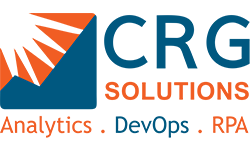Published By: Sandeep Viswanathan
Date: April 13, 2020
Florence Nightingale is popularly known as the ‘lady with the lamp’ for her wholehearted devotion to caring for the wounded soldiers during the Crimean War in the 1850s. A pioneer of modern nursing care, we could also call her the ‘lady with the data’, because she was a passionate statistician and data visualization pioneer as well.
Her story gains significance not just because 2020 marks the bicentenary of her birth but also because of the world order has been disrupted like never before. This definitely is the biggest healthcare challenge that the world has seen in a very long time. But, like Florence Nightingale, can the power of analytics be brought to bear on a disease that is currently threatening the health and economic welfare of people across the globe? She used data to tackle real world problems and help to save lives. And if she were alive now, I think she would challenge us to do the same.
As a business intelligence company, we recognize that we are in a unique position to help people make critical decisions right now. Access to timely, trustworthy information – that is easy to analyse – has been difficult during this rapidly changing situation. Tableau together with Tableau Community and partners like us, have created a free, publicly-accessible COVID-19 Data Resource Hub. This should tackle the lack of reliable, specific, and up-to-date data which is adding to the uncertainty we all feel.
Alteryx, a leader in the 2020 Gartner MQ for Data Science & ML platform, has introduced new resources to help you get real-time assistance from Alteryx experts, learn about relevant use cases to help you meet today’s unique challenges and stay productive. It’s more important than ever to make smarter, more informed decisions.
In the fight against the novel coronavirus (COVID-19), there have been a wide swath of use cases being discussed, and in some cases, implemented. Here are few of the brand new ways that data science is being leveraged to solve challenges diseases have thrown at us.
For our customers, as you use data to drive decisions about how to run your businesses while keeping your employees safe, we want to reassure you – as a Tableau Solutions Partner or an Alteryx Solutions Partner – that CRG’s solutions are secure and operating without interruption. We recognize that you’re relying on us. We will provide the support, innovation, and reliability that you depend on—nothing has changed on that front.
Whether you’re a hospital looking to quickly leverage data to optimize scheduling, understand the effects of a pandemic on your system, or ensure the right level of inventory for key items, or a business that may be impacted by the societal changes that are occurring, data science can be leveraged to more efficiently respond.
![722 [Converted]](https://crgsolutions.co/wp-content/uploads/2020/04/722-Converted-2.jpg)
In any crisis, we often look to address the now without much thought about what comes next. And at the first sign of recovery, organizations will shift focus and face a new set of challenges they should’ve prepared for—perhaps most critically, supply chain. In parallel to reacting to short-term business implications, leaders should also implement a robust analytics strategy and leverage predictive insights to identify and prepare for future vulnerabilities.
While we regularly see companies in every sector driving double-digit improvements to revenue, operational efficiency, and cost. Analytics can most definitely also save lives. With the ability to create new analytics quickly with self-service tools, there are still more breakthroughs to come, whether in vaccine analytics or containment methodologies, in treatment efficacy analysis, or new procedures to protect first responders.
Like Florence Nightingale, people with great subject matter experience and knowledge will continue to leverage advanced analytic tools and techniques to change the world. So, what are the lessons from Nightingale’s life for today’s data scientists?
- Analytics and Big Data are critical to understanding and combating the spread of deadly diseases.
- Focus on tackling the problem that matter the most.
- Choose trustworthy sources, undertake careful data quality assessments and incorporate diverse datasets in your analysis.
- Data on its own is not enough – present it in imaginative & easily digestible ways
- Successful collaboration and partnership results in greater impact

Leave a Comments
You must be logged in to post a comment.